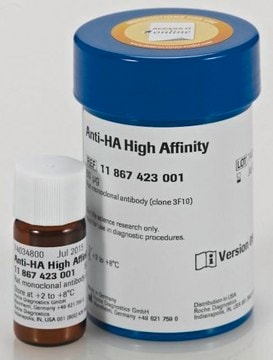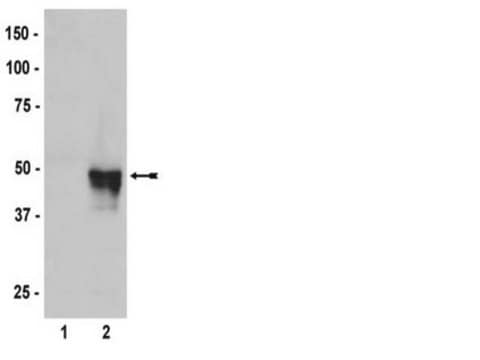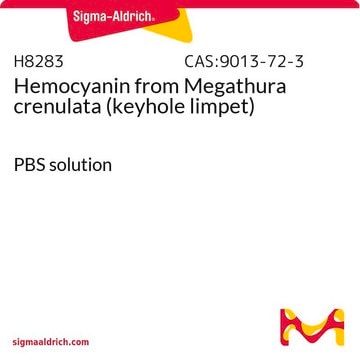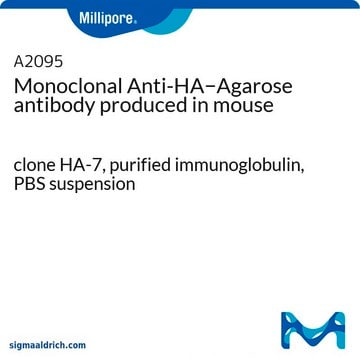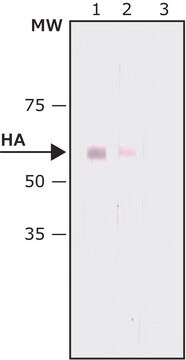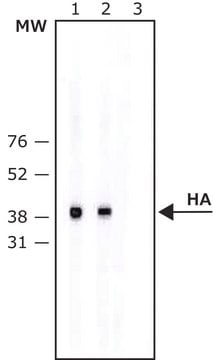H9658
Monoclonal Anti-HA antibody produced in mouse
clone HA-7, ascites fluid
Synonym(s):
Monoclonal Anti-HA, HA Antibody - Monoclonal Anti-HA antibody produced in mouse, Ha Antibody Sigma, Sigma Ha Antibody, Anti-HA, Anti-Influenza Hemagglutinin
About This Item
Recommended Products
biological source
mouse
Quality Level
conjugate
unconjugated
antibody form
ascites fluid
antibody product type
primary antibodies
clone
HA-7, monoclonal
contains
15 mM sodium azide
technique(s)
immunocytochemistry: suitable
immunoprecipitation (IP): suitable
indirect ELISA: suitable
western blot: 1:20,000 using extracts from 293T (human embryonic kidney) cells expressing a recombinant HA-fusion protein
isotype
IgG1
shipped in
dry ice
storage temp.
−20°C
target post-translational modification
unmodified
Looking for similar products? Visit Product Comparison Guide
General description
Specificity
Immunogen
Application
- immunoprecipitation in human embryonic kidney 293 cells
- immunoblotting in HeLa cells
- immunopurification in human embryonic kidney 293 cells
- immunostaining for electron microscopy in mouse embryonic fibroblasts
- in immunocytochemistry of hippocampal slices
- Immunoblotting, to study the expression of fusion protein
- Coimmunoprecipitation assay
- Immunoblotting of lysate protein
Biochem/physiol Actions
Storage and Stability
For extended storage, freeze in working aliquots. Repeated freezing and thawing, or storage in "frost-free" freezers, is not recommended. If slight turbidity occurs upon prolonged storage, clarify the solution by centrifugation before use. Solutions at working dilution should be discarded if not used within 12 hours.
Disclaimer
Not finding the right product?
Try our Product Selector Tool.
Storage Class Code
12 - Non Combustible Liquids
WGK
nwg
Flash Point(F)
Not applicable
Flash Point(C)
Not applicable
Regulatory Listings
Regulatory Listings are mainly provided for chemical products. Only limited information can be provided here for non-chemical products. No entry means none of the components are listed. It is the user’s obligation to ensure the safe and legal use of the product.
JAN Code
H9658-BULK:
H9658-.2ML:
H9658-VAR:
H9658-100UL:
Certificates of Analysis (COA)
Search for Certificates of Analysis (COA) by entering the products Lot/Batch Number. Lot and Batch Numbers can be found on a product’s label following the words ‘Lot’ or ‘Batch’.
Already Own This Product?
Find documentation for the products that you have recently purchased in the Document Library.
Customers Also Viewed
Our team of scientists has experience in all areas of research including Life Science, Material Science, Chemical Synthesis, Chromatography, Analytical and many others.
Contact Technical Service
